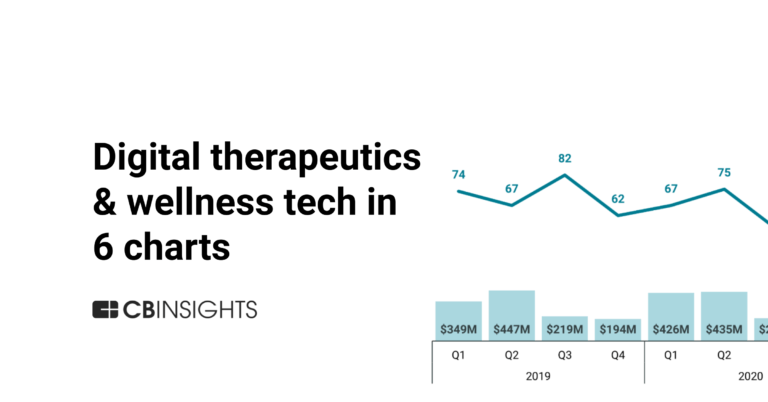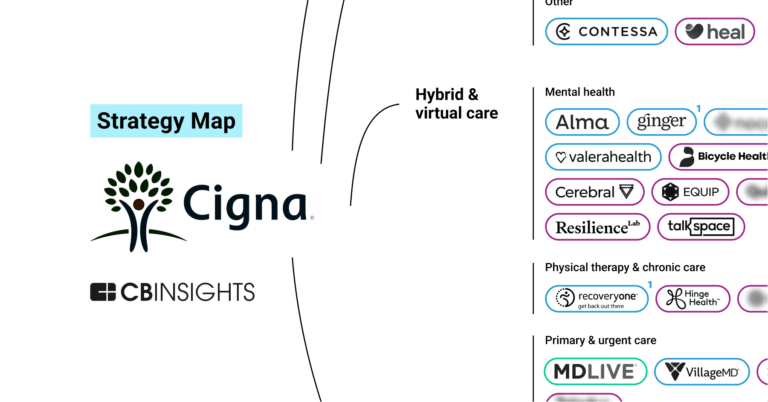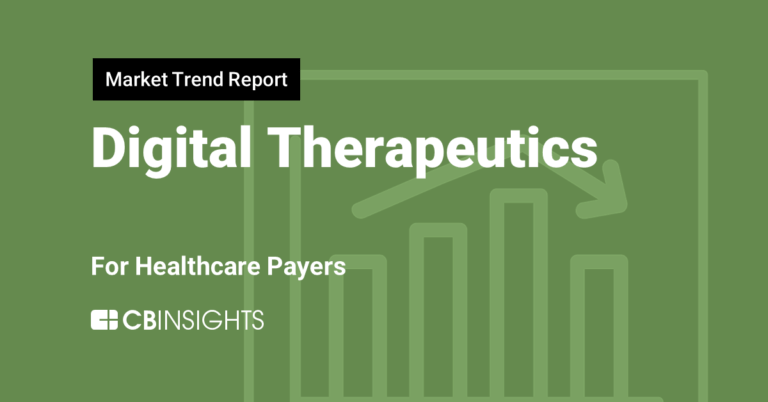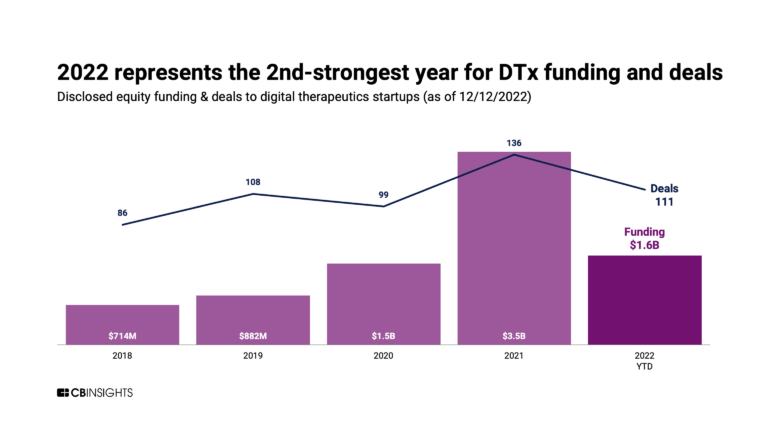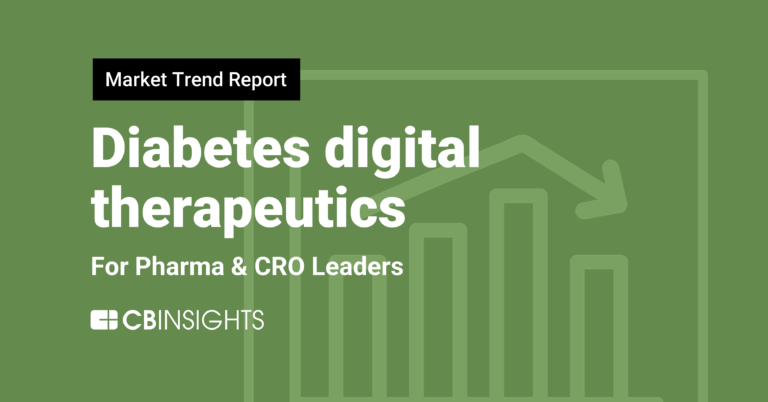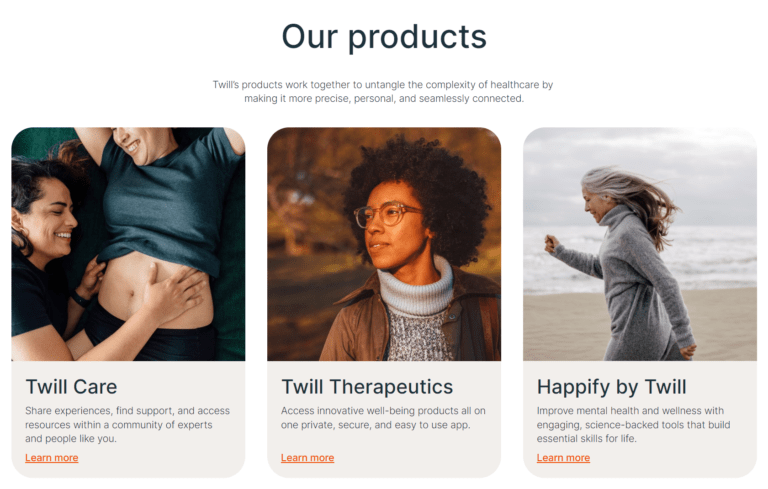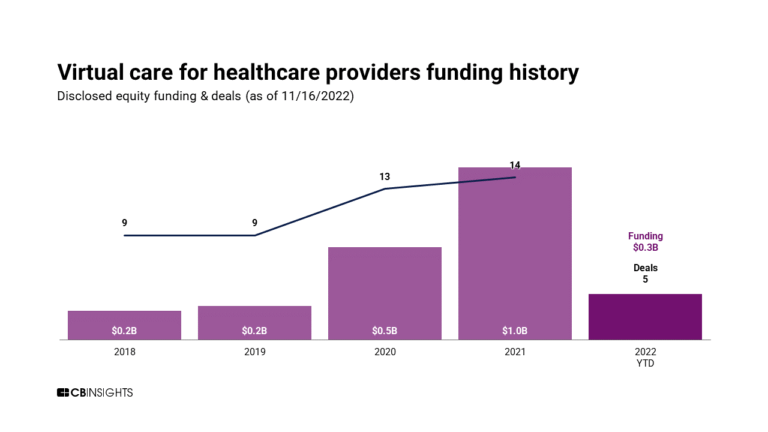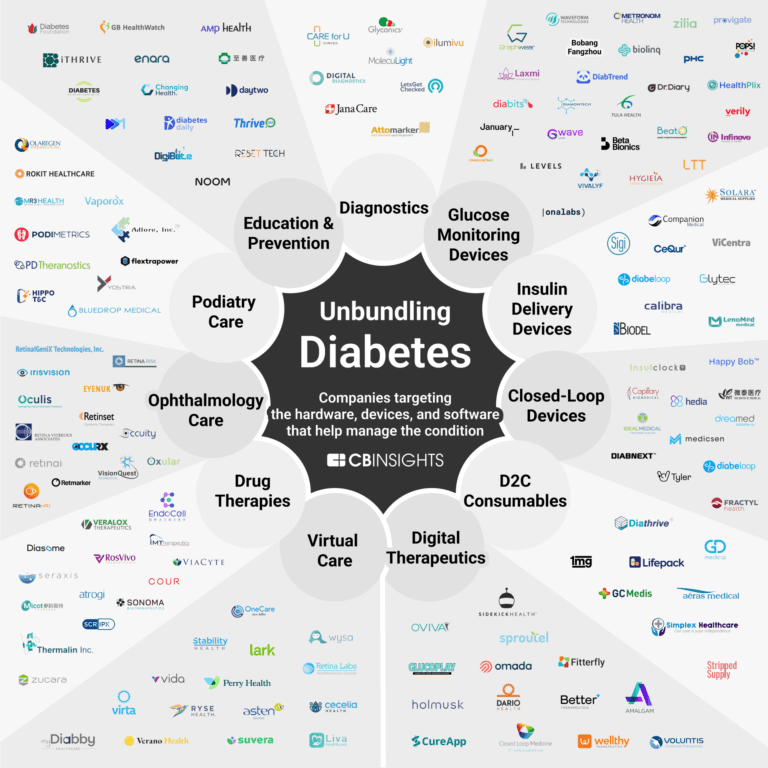
Omada Health
Founded Year
2011Stage
Debt | AliveTotal Raised
$529.67MValuation
$0000Last Raised
$80M | 2 yrs agoMosaic Score The Mosaic Score is an algorithm that measures the overall financial health and market potential of private companies.
-13 points in the past 30 days
About Omada Health
Omada Health operates as a digital behavioral medicine company. It offers behavioral counseling using insights about social networking, gaming, and behavioral sciences. The company primarily serves sectors such as employers, health plans, benefit consultants, and health systems and providers. It was founded in 2011 and is based in San Francisco, California.
Loading...
Omada Health's Product Videos

ESPs containing Omada Health
The ESP matrix leverages data and analyst insight to identify and rank leading companies in a given technology landscape.
The D2C prescription weight loss & metabolic services market offers weight loss and metabolic management services directly to consumers, typically without the need for traditional healthcare provider involvement. These services often utilize digital platforms, telemedicine, and personalized approaches to provide convenient, accessible, and evidence-based solutions for individuals seeking to manage…
Omada Health named as Highflier among 13 other companies, including Eli Lilly and Company, Teladoc Health, and Hims.
Omada Health's Products & Differentiators
Omada for Diabetes
Omada closes gaps in care to help members with diabetes prevention and co-morbidities. Comprehensive care path and team support provided to members by health coaches certified through CDC-affiliated Diabetes Training and Technical Assistance Center (DTTAC), condition-specific peer groups and communities, and virtual physician visits.
Loading...
Research containing Omada Health
Get data-driven expert analysis from the CB Insights Intelligence Unit.
CB Insights Intelligence Analysts have mentioned Omada Health in 11 CB Insights research briefs, most recently on Jun 23, 2023.
Expert Collections containing Omada Health
Expert Collections are analyst-curated lists that highlight the companies you need to know in the most important technology spaces.
Omada Health is included in 7 Expert Collections, including Unicorns- Billion Dollar Startups.
Unicorns- Billion Dollar Startups
1,261 items
Digital Health 50
300 items
The most promising digital health startups transforming the healthcare industry
Tech IPO Pipeline
282 items
Track and capture company information and workflow.
Future Unicorns 2019
50 items
Digital Health
11,271 items
The digital health collection includes vendors developing software, platforms, sensor & robotic hardware, health data infrastructure, and tech-enabled services in healthcare. The list excludes pureplay pharma/biopharma, sequencing instruments, gene editing, and assistive tech.
Telehealth
3,114 items
Companies developing, offering, or using electronic and telecommunication technologies to facilitate the delivery of health & wellness services from a distance. *Columns updated as regularly as possible; priority given to companies with the most and/or most recent funding.
Omada Health Patents
Omada Health has filed 9 patents.
The 3 most popular patent topics include:
- finite automata
- human communication
- models of computation

Application Date | Grant Date | Title | Related Topics | Status |
|---|---|---|---|---|
11/5/2012 | Diabetes, Obesity, Nutrition, Diets, Cytokines | Application |
Application Date | 11/5/2012 |
|---|---|
Grant Date | |
Title | |
Related Topics | Diabetes, Obesity, Nutrition, Diets, Cytokines |
Status | Application |
Latest Omada Health News
Feb 7, 2025
Investors are desperate for better public companies after the last IPO class’s poor performance. VCs and bankers said startups need profitability, hundreds of millions in revenue, and high growth. As healthcare startups hope for an opening in the IPO market this year, investors’ standards for their public prospects are higher than ever. It’s been a dismal few years for healthcare IPOs. The last wave of startups went public in 2021, with 23 healthcare companies going out that year via IPO or SPAC, according to Rock Health. In the next three years, only four companies went public — and only two of those, Waystar and Tempus AI, remain on the market today. With interest rates expected to drop this year, founders are waiting with bated breath for another wave of healthcare IPOs. But investors say those startups will have to work a lot harder to go public this time around. Most of the healthcare companies that went public in the last cycle haven’t put in a strong showing. Companies like care management player Neue Health, formerly Bright Health Group , and healthcare navigator Accolade have since gone private in acquisitions, valuing them at a fraction of their IPO prices. Others, including diagnostic testing company Cue Health and senior care provider Cano Health, have declared bankruptcy. Many of the companies that have remained public have seen their shares plummet, like telehealth company Amwell , which went public in 2020 at a $3.9 billion valuation. Today, its market cap is about $165 million. The public healthcare markets are in dire need of a redemption arc. Investors and bankers told Business Insider that healthcare startups considering an IPO should have revenue in the several hundreds of millions, profitability, and growth at a pace of 30% or more on top of the prior year's revenue. Those expectations represent a striking heel-turn from the last cycle when high-growth but unprofitable healthtech companies with lower revenue could consider public market debuts. Those elevated standards hope to ensure a stronger performance for the next wave of public healthcare companies, a critical step in proving the industry's viability for future investors. "A lot of the hype companies go public, and then a few years later their prices drop, which trickles down to the earlier-stage investors who think, 'Why are we putting hundreds of millions of dollars into these companies that IPO for a few billion, and then six months later they are at less than $1 billion in value?'" said Farzad Soleimani, a partner at early-stage firm 1984 Ventures. "I think we are at a stage where we need to see a lot of improvements in that regard." Meeting the mandate Several investors and founders mentioned the "rule of 40" as a benchmark for what healthcare companies should go public. Typically applied to software companies, that principle states that the sum of a company's revenue growth rate and profit margin should be equal to or greater than 40%. Reaching those metrics isn't so easy for healthcare startups , which can struggle to reach tech-expected margins when facing the high costs of employing clinicians or navigating insurance reimbursement. "Especially in healthcare, the bar is pretty high — those scaled, $500-million-plus revenue companies, ideally profitable, and then you want to be growing at a reasonable clip too," said Yuri Lee, a partner at IVP. "A lot of the companies that would've gone public a few years ago, I don't think they're in a place be able to meet those three criteria." Multiple investors and bankers told Business Insider that physical therapy startup Hinge Health is the best choice for the year's first digital health IPO, with margins more closely resembling a software company than a healthcare services provider. Hinge Health hired banks including Morgan Stanley last year to prepare for its intended public market debut, with the hopes of going public in early 2025, BI reported in September. Omada Health filed its own S-1 last summer ahead of a potential IPO, BI reported in October. The startup, which has been treating diabetes since 2011, saw significant growth in 2024 tied to its weight loss offering as GLP-1 drug use surged, CEO Sean Duffy told BI that month. Foto: Omada Some IPO prospects are staying private for now to buy up other companies to boost their growth. Private equity-backed Datavant told BI in January that the $7 billion health data company is looking for multiple acquisitions this year. With "well over" $1 billion in revenue and steady profitability, CEO Kyle Armbrester said Datavant plans to buy new assets using the cash on its balance sheet. Other startups have been vocal about their plans to reach profitability before considering an IPO. Sword Health CEO Virgilio Bento told BI in 2023 that he'd only be interested in taking the physical therapy startup public if it's profitable, a milestone he later told Axios the company expected to hit in 2024. He said Sword could go public as soon as the second half of 2025. Fellow diabetes startup Virta Health told BI in January that it expects to reach profitability by the end of 2025. CEO Sami Inkinen said an IPO is the natural next step for the company, but one he doesn't want to take if Virta is burning more cash than it's bringing in. That's a mistake that plagued digital health companies in the last cycle of IPOs, he said, adding that there are still startups considering IPOs in the next cycle that haven't reached profitability. "Nearly all of these companies are hundreds of millions of dollars in revenue and still zero profits. That is very dangerous," he said. New valuations incoming With companies like Amwell and 23andMe sitting at market caps in the few hundreds of millions, healthcare investors are eager for a stronger set of public comps with higher valuations they can use as reference points when valuing private companies. However, some of the startups hoping to go public haven't announced funding since 2020 or 2021, when VCs regularly used sky-high revenue multiples to calculate valuations. Hinge Health, for example, will have to contend with the $6.2 billion valuation it landed in 2021 if it doesn't raise another round of funding before going public. It's unclear whether the current healthcare IPO hopefuls will be able to match those high valuations in their public market debuts. Some recent take-private deals, like Transcarent's acquisition of Accolade in January — a $621 million deal, about half of Accolade's valuation at the time of its 2020 IPO — could help ease the problem. Removing the healthcare navigator from the public markets could allow other navigators, like Included Health, to go public with better multiples. Included had previously filed its S-1 for a 2022 IPO, but called off its plans when the market tanked, CEO Owen Tripp told BI in January. This time around, he said, fewer point solutions are standing up to public investor scrutiny. "The solutions I see coming now are way more complete and just bigger," he said. "We could have gone public based on our numbers then — think about where we are now." Foto: Included Health More than half of the digital health companies that went public in 2021 did so through mergers with special purpose acquisition companies, an appealing option for startups hoping for a quicker, less regulated route to the public markets. But the poor performance of those deals has put SPACs mostly off-limits for healthcare startups hoping to go public in the next wave, said Jon Swope, a managing director in Barclays' healthtech investment banking practice. "It's unlikely that we see companies using that vehicle that could go public the regular way," he told BI in October. Scott Barclay, a managing director at Insight Partners, said the high standards for new healthcare IPOs are a sign of a healthier market. Because the market shifted from valuing growth alone to growth alongside profit, he said, founders have been forced to bring stronger and more efficient businesses to the table. "We're seeing more intrinsically good business models powered by software versus a lot of previous shots in the last generation," he said. "The market drop has forged founders with businesses that are just stronger." Read the original article on Business Insider
Omada Health Frequently Asked Questions (FAQ)
When was Omada Health founded?
Omada Health was founded in 2011.
Where is Omada Health's headquarters?
Omada Health's headquarters is located at 500 Sansome Street, San Francisco.
What is Omada Health's latest funding round?
Omada Health's latest funding round is Debt.
How much did Omada Health raise?
Omada Health raised a total of $529.67M.
Who are the investors of Omada Health?
Investors of Omada Health include Armentum Partners, Civilization Ventures, dRx Capital, Wellington Management, Perceptive Advisors and 30 more.
Who are Omada Health's competitors?
Competitors of Omada Health include Healthify, Better Therapeutics, Twill, Wellthy Therapeutics, Vida Health and 7 more.
What products does Omada Health offer?
Omada Health's products include Omada for Diabetes and 3 more.
Who are Omada Health's customers?
Customers of Omada Health include Castell and Federated Insurance.
Loading...
Compare Omada Health to Competitors

Virta Health specializes in reversing type 2 diabetes and managing prediabetes and obesity within the healthcare sector. The company offers personalized nutrition plans and medical support to help individuals reduce blood sugar levels and decrease dependency on medications. Virta Health primarily serves individuals seeking to manage or reverse metabolic diseases. Virta Health was formerly known as KetoThrive. It was founded in 2014 and is based in San Francisco, California.

WellDoc focuses on the healthcare technology sector, specifically in the domain of chronic care management. The company offers an AI-driven digital coaching platform that aids in the self-management of various chronic conditions such as diabetes, hypertension, heart failure, and obesity. Its platform also provides data-driven insights to support care team interventions and decision-making and promotes general wellness and education. WellDoc primarily serves health plans, health systems, employers, and partners in the healthcare industry. It was founded in 2005 and is based in Columbia, Maryland.

Lyra Health specializes in providing workforce mental health care solutions within the healthcare industry. The company offers evidence-based mental health care, utilizing AI-powered provider matching and a digital platform to deliver personalized support and treatment. Lyra Health's services cater to a diverse range of mental health needs, ensuring accessible and effective care for individuals and teams. It was founded in 2015 and is based in Burlingame, California.

Calibrate is a company that operates within the healthcare and wellness industry, providing a program that includes clinician prescribed GLP-1 medication and personalized video coaching. The company serves sectors that offer employer-sponsored health programs and those seeking long-term weight management solutions. It was founded in 2019 and is based in New York, New York.

Vida Health specializes in personalized health coaching and chronic condition management within the healthcare sector. The company offers a digital health platform that provides programs for managing diabetes, obesity, depression, and hypertension, utilizing a network of healthcare providers. It primarily serves employers, health plans, and consultants aiming to address health issues for their members and manage healthcare costs. It was founded in 2014 and is based in San Francisco, California.
Palta develops a range of application-based products in the digital health segment. It provides insights into the health and behavioral habits of customers and helps them detect health problems through artificial intelligence (AI) systems. Its applications focus on preventative healthcare and well-being. It was formerly known as Haxus Ventures. It was founded in 2016 and is based in London, United Kingdom.
Loading...
